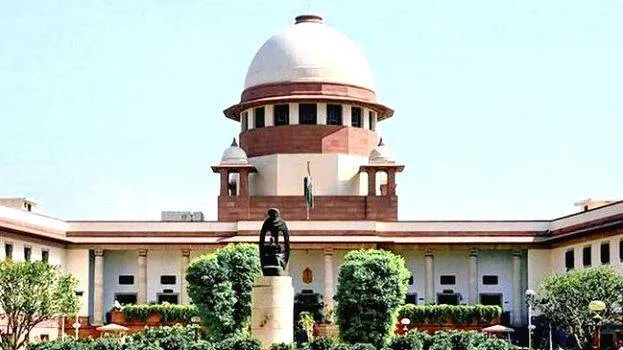

NEW DELHI: The Supreme Court on Thursday upheld the constitutional validity of Section 6A of the Citizenship Act inserted by way of an amendment in 1985 in furtherance of the Assam Accord.
A bench of Chief Justice of India DY Chandrachud, Justices Surya Kant, MM Sundresh, and Manoj Misra gave the majority verdict, while JB Pardiwala passed a dissent verdict.
The Central government, in an affidavit, had told the Supreme Court that it would not be able to provide accurate data on the extent of illegal migration of foreigners into India as such migration happened in a secretive manner.
On December 7, the apex court had directed the Central government to furnish data on the number of immigrants who were conferred Indian citizenship through Section 6A(2) of the Citizenship Act, 1955 and what steps have been taken so far to curb illegal migration into Indian territory.
The affidavit had stated that 14,346 foreign nationals were deported from the country between 2017 and 2022, and 17,861 migrants who had entered Assam between January 1966 and March 1971 were given Indian citizenship under the provision.
32,381 persons were declared foreigners by orders of Foreigners Tribunals between 1966-1971, it had added.
Earlier, the bench had said that Section 6A was enacted as a humanitarian measure in the wake of the 1971 Bangladesh Liberation War and is deeply interwoven in our history.
On December 17, 2014, a matter relating to citizenship in Assam was referred to the five-judge Constitution bench. On April 19, 2017, the top court constituted the bench to hear the case.
In 1985, the Indian government and the All Assam Students Union (AASU) and the All Assam Gana Sangram Parishad (AAGSP) negotiated and drafted the Assam Accord and created categories of immigrants. Section 6A was added to the Act in December 1985 in furtherance of the Assam Accord.
AASU and AAGSP were groups that agitated against an influx of Bangladeshi-immigrants after Bangladesh separated from West Pakistan on 26 March 1971.
Section 6A provides the framework to recognise migrants in Assam as Indian citizens or to expel them based on the date of their migration.
The provision provides that those who have come to Assam on or after January 1, 1966, but before March 25, 1971, from specified territories, including Bangladesh, and since then are residents of Assam, must register themselves under Section 18 for citizenship. Therefore, the provision fixes March 25, 1971, as the cut-off date for granting citizenship to Bangladeshi migrants in Assam.
Petitioners, including the Assam Public Works President, the Assam Sanmilita Mahasangha, and many others, challenged the provision, saying that it singles out Assam and has facilitated mass immigration. They claimed that the demographic of Assam changed drastically due to immediate citizenship being granted to immigrants who claim that they entered Assam before the March 1971 cut-off date.
Petitioners had challenged Section 6A way back in 2012 while arguing that Section 6A is discriminatory, arbitrary and illegal so far as it provides for different cut-off dates for regularising illegal migrants who entered Assam and the rest of India.
Section 6 of the Constitution states that any person who migrated from Pakistan before 19 July 1948 would be granted citizenship. Petitioners said that Section 6A indirectly amended this constitutional provision, arguing that Bangladesh was still a part of Pakistan on 1 January 1966.
They said the insertion of a new cutoff date for granting citizenship would violate an existing cutoff date for immigrants entering India from Pakistan.
The Bangladesh Liberation War, which led to the independence of Bangladesh from Pakistan, witnessed a massive influx of migrants to India. Even prior to when Bangladesh gained independence from East Pakistan in 1971, migration had started to India.
On March 19, 1972, Bangladesh and India entered into a treaty for friendship, cooperation and peace.